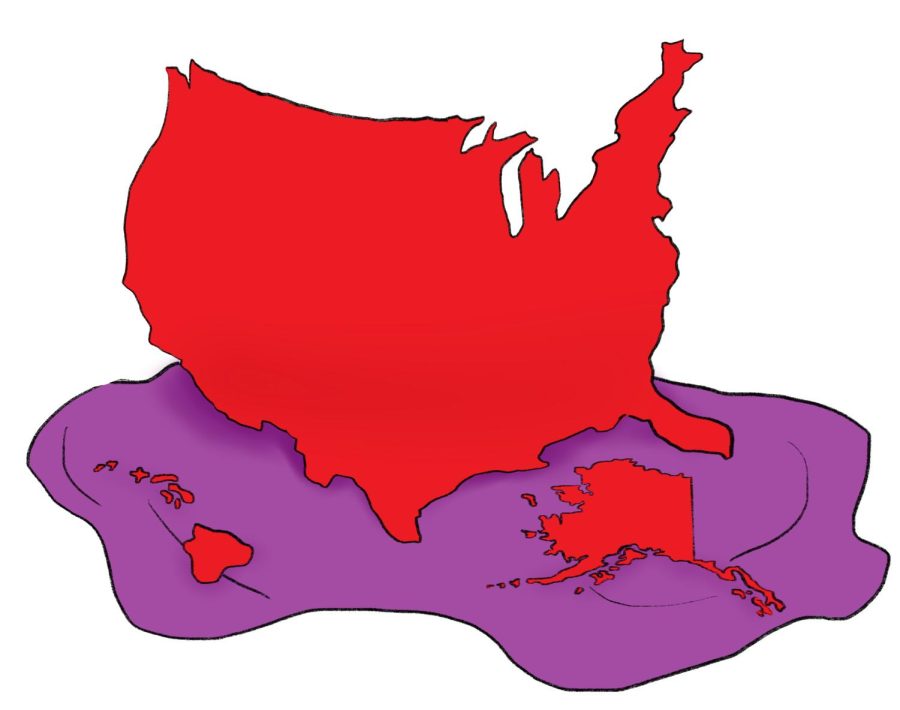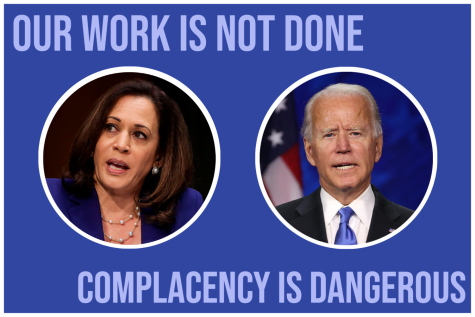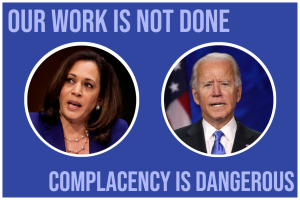Why Republicans haven’t earned their mandate
Why Republicans lost, and what they should do about it.
Last month’s midterms were a flop for Republicans, vastly underperforming most expectations.
There’s no spinning it: Republicans massively underperformed expectations this midterm. What was expected to be a red wave instead turned out to be a purple puddle: the GOP lost several important gubernatorial races, the Senate, and are on track for a bare House majority.
Although prominent politicians like Chuck Schumer and Joe Biden are taking this as a vindication of the Democratic agenda, I would argue the flop had much more to do with Republican incompetence rather than Democrat genius. Inflation and illegal immigration have hit record highs, Biden’s job approval ratings have consistently hovered around the high 30s and low 40s, and an overwhelming majority of people think the U.S. is headed in the wrong direction: this is not what successful governance looks like.
So what happened?
There’s been a lot of blame that’s been thrown around, but I have a hard time seeing how a different slate of candidates would have produced a different result. Given his career background, David McCormick would have certainly done worse than Dr. Oz in Pennsylvania. In Nevada, Laxalt had name recognition and experience as someone who had been elected to statewide office. Although Herschel Walker is a weak candidate there wasn’t ever much of another choice there either. And in Arizona, Blake Masters was also the best out of that crowded primary field. Even if you wanted to be harsh about it, it still looks like all of the least-worst candidates won their primaries. All of these candidates ran very active campaigns, even those in New Hampshire, Colorado, and Washington. These were all fresh new faces for the party.
It’s also hard to pin the blame on Trump when he didn’t really make the election about him. He endorsed in the primaries, rallied in typical Republican areas, and contributed some campaign money to these candidates in the final stretch. Teasing a presidential run before the elections was a bad idea, and he could have given some more financial support for these candidates, but neither of those factors would have been decisive in any of these elections.
So again, what happened?
Republicans did actually run on winning issues, and independent voters were more than willing to vote against Democrats this cycle: virtually every single congressional district saw some sort of shift toward Republicans, and incumbent Senate Democrats in Georgia and Nevada got less than 50% of the vote. They didn’t necessarily like Democrats, but independent voters weren’t ever given much of a reason to vote for Republicans. Living in a much more partisan and divided era means winning independents over is going to require substance, and cookie-cutter “eLeCt Me To StOp BiDeNfLaTiOn!” campaigns aren’t going to cut it.
The only states where the red wave actually hit were ones where Republican candidates provided a clear vision for their state/district. Ron DeSantis won re-election by a landslide, garnering the largest margin of victory for a Republican candidate in Florida since 1868 and confirming the end of its status as a purple state. In New York, Lee Zeldin came closer to the governorship than any other Republican in 20 years, garnering 47.4% of the vote in one of the bluest states in the country. And although Zeldin didn’t win, his coattails were able to pull several congressional candidates over the finish line. A Republican House majority wouldn’t have been possible without those purple and blue seats.
In addition to vision, Republicans need the right logistics too. Fetterman had one of the worst political debate performances in modern history (if not ever) and still managed to win. In Arizona, Katie Hobbs refused to debate her opponent and ran a significantly less substantive campaign. A lot of people will always vote party-line regardless of how good the candidate is (or how effectively that party has actually run the country), so a lot of the pressure is now on turning out that party base. Pennsylvania Democrats in places like Bucks County did an extremely effective job at turning out as many base voters as possible through ballot harvesting. A lot of these candidates were able to rely on these voter turnout machines to the point where campaigning wasn’t even much of a priority for them.
A lot of the new Republican coalition is made up of people who aren’t frequent voters. There has to be more effort put into turning them out in more ways than just in-person voting. In California, Republicans made effective use of ballot harvesting, holding and flipping congressional seats that voted for Biden by double digits. New York Republicans made similar efforts in turning voters out, and Florida Republicans were also able to generate early leads through mail-in ballots.
These midterms were a setback but they present a major opportunity for the GOP to continue transforming itself. They’ve shown that a substantive and appealing platform doesn’t require compromising core values and that good voter outreach is possible and effective when done well. It also showed that running a Republican non/anti-Trump campaign doesn’t work either: Senate candidate Joe O’Dea significantly underperformed Trump in Colorado. The GOP cannot return to its former Romney/Cheney/Bush state if it hopes to remain competitive.
For the upcoming 2024 elections, Republicans have a major opportunity in the House, Senate, and presidency. There’s a lot of hubris among Democratic politicians, and by sticking with Biden’s policies they’re keeping themselves vulnerable. But if Republicans hope to get anywhere they’ll need to be more than the opposition party.























